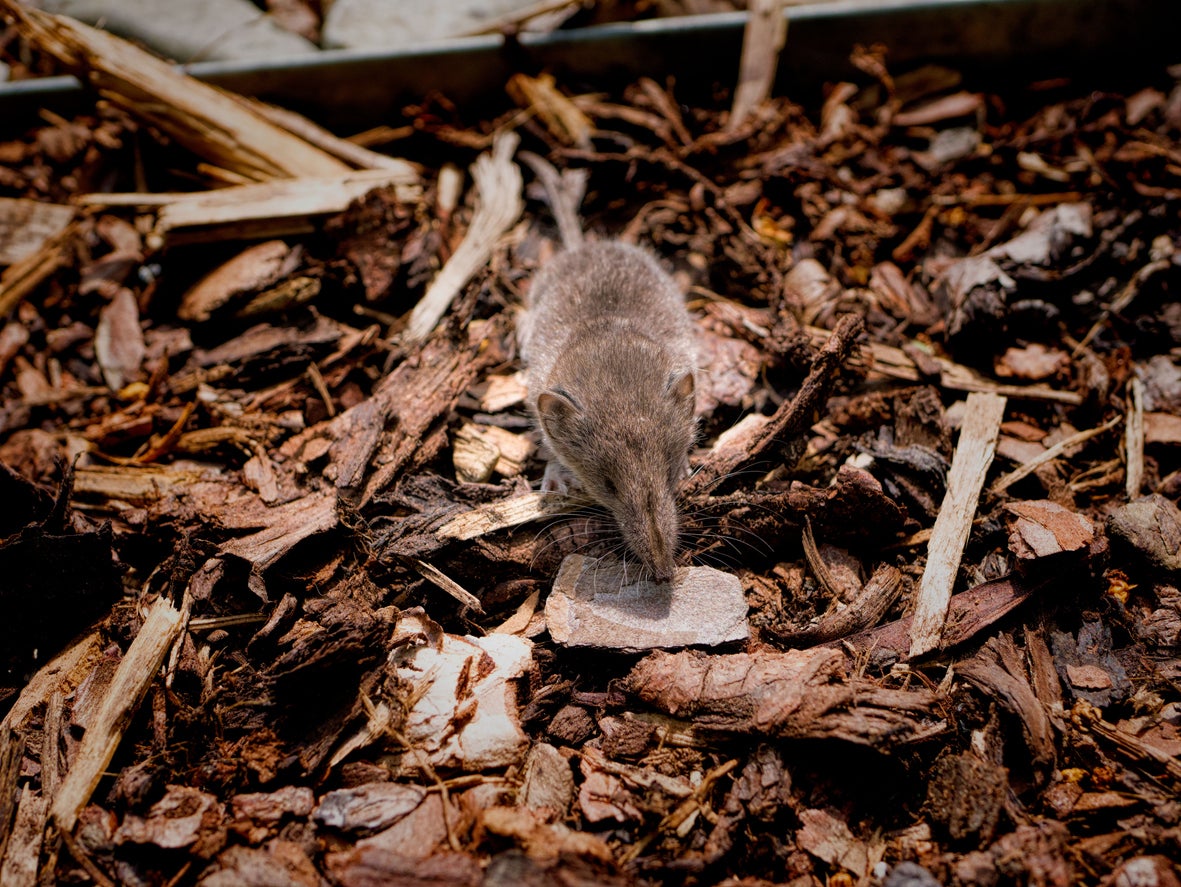Do Mice Like Mulch: How To Get Rid Of Mice In Garden Mulch


Sign up for the Gardening Know How newsletter today and receive a free copy of our e-book "How to Grow Delicious Tomatoes".
You are now subscribed
Your newsletter sign-up was successful
Vermin like mice, shrews, and voles can be a troublesome pest for many. The thought of these rodents is enough to make many homeowners shudder. Just as we would prefer our homes to be rodent free, preventing the presence of these nuisance animals in our gardens, yards, and flower beds is equally important. Read on for tips on preventing mulch rodent problems.
Do Mice Like Mulch?
Mice in the garden, as with other rodents like voles and shrews, can cause a multitude of problems. Damage to vegetable plants, fruit trees, expensive ornamentals, and/or flowering bulbs can be quite costly. By familiarizing ourselves with the needs and habits of these pests, we can better prevent them from nesting in or near our homes.
The main reasons in which mice invade the home landscape is to look for food and to find materials to safely build nests with. Your garden is naturally filled with plants that may appeal to rodents. This, in combination with the presence of mulching materials, make your garden the ideal space for these pests.
Mulches such as straw, wood chips, and leaves offer the mice and their relatives safety and cover. While many growers use these resources to prevent weed growth or to regulate moisture, the mulch also provides protection for undesirable rodents. Keeping mice out of mulch is a very difficult task, especially as the weather begins to cool in the fall. Though mulch rodent problems can be extremely frustrating, there are some solutions.
Get Rid of Mice in Garden Mulch
When it comes to mice living in mulch, prevention is key. When making new plantings, avoid using a very thick layer of mulch. This is especially true when planting trees. Using the mulch only as needed will reduce the amount of protection provided to the mice. In turn, the mice may be less likely to feed on the bark of trees or on the stems of delicate flower plantings.
Be certain to maintain a clean and tidy yard and garden space. Remove any excess materials and/or mulches that are not in use, as this will discourage mice and the like from moving into the garden.
If prevention of keeping mice out of mulch has not been successful, there are other options of pest control. These methods include the use of traps and other products designed to deal with rodents. Poisons designed to control mice should not be used outdoors, as other animals or children may come into contact with them. As always, make certain to use these products only as directed per the manufacturer’s label instructions.
Sign up for the Gardening Know How newsletter today and receive a free copy of our e-book "How to Grow Delicious Tomatoes".
Though some people may suggest growing fragrant plants such as mint or lavender, there is little evidence that this is effective in deterring mice. Those wishing to naturally control mice populations may consider employing the help of our feline friends. Depending upon where you live, the presence of working cats in the garden can help to reduce rodent populations.

Tonya Barnett has been gardening for 13 years. Flowers are her passion. She has transformed her backyard into a cut flower garden, which she regularly chronicles on her YouTube channel http://www.youtube.com/@tonyawiththeflowers.